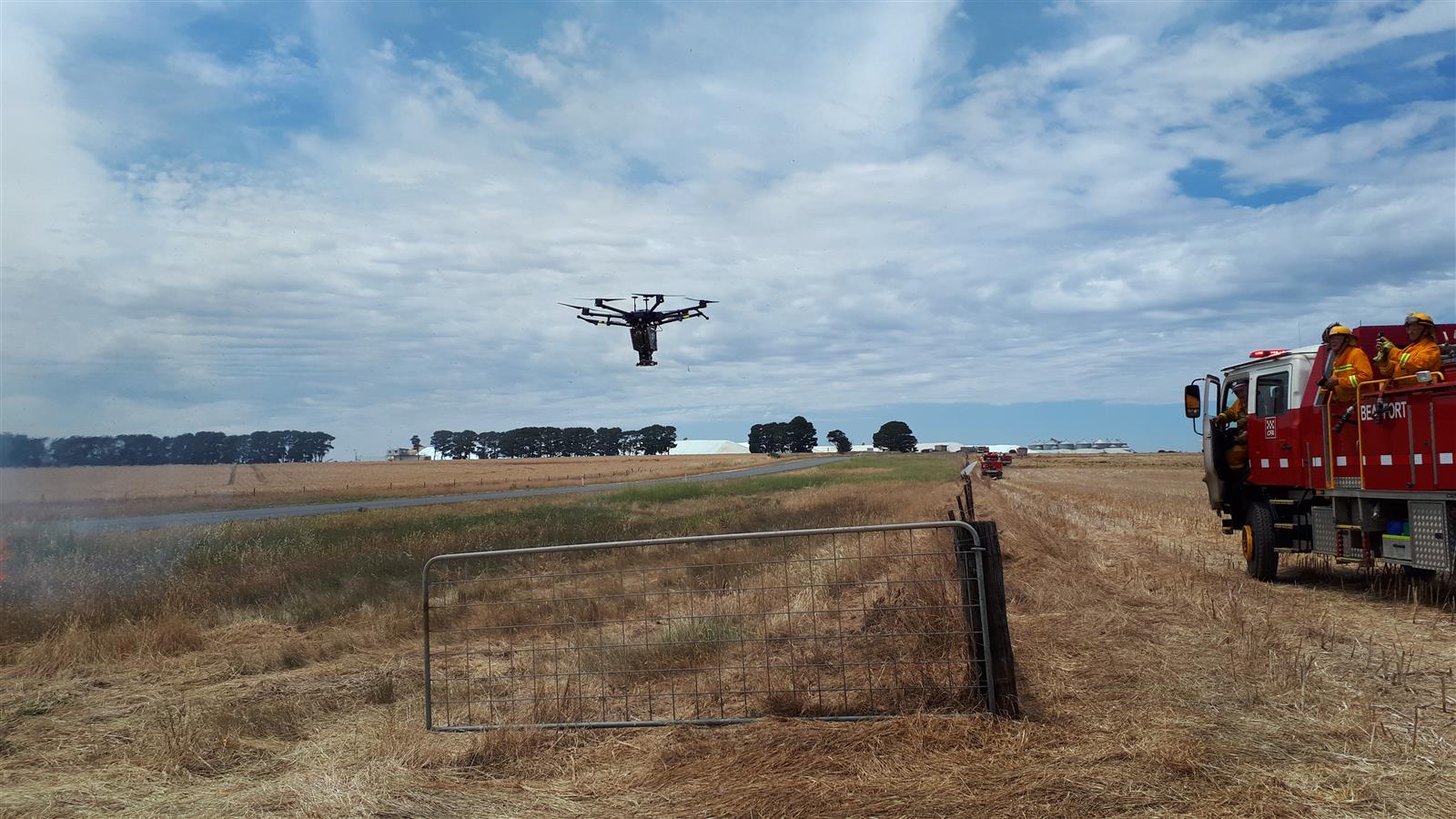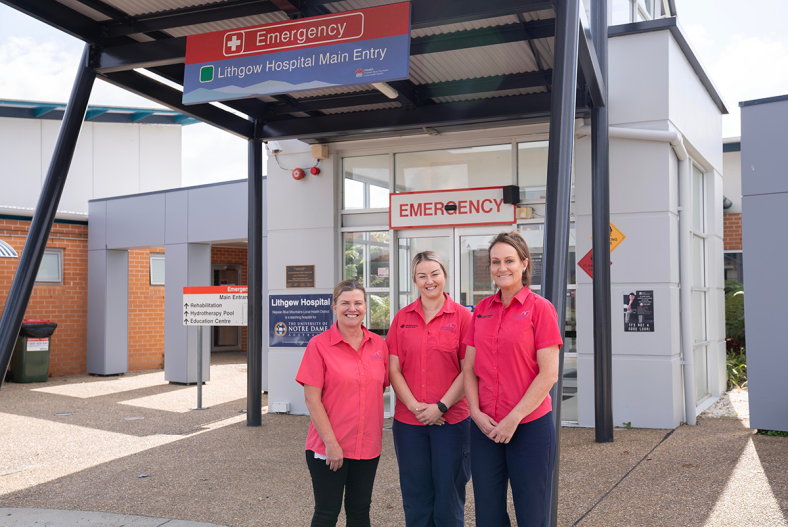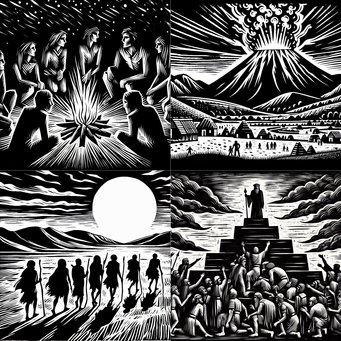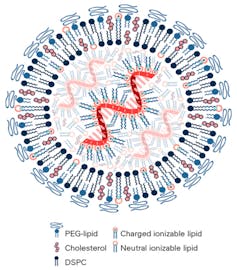 During the planned burn
During the planned burn
CFA members conducted a planned burn in Western Victoria trialling new technology for the first time.
The trial, at Stoneleigh, looked at how drones could potentially speed up planned burning to create large fuel breaks and a safer environment for volunteers conducting the burns.
Vegetation Management Officer, West Region, Joshua Hodges, said the use of drones to conduct planned burns are a great way of creating fuel breaks ahead of fire season.
“It’s difficult to burn large areas in a short period of time when you are on foot,” he said.
“A drone can complete breaks faster, provide a safer environment for volunteers and is easier to use in areas of rocky terrain.”
The trial burn was six kilometres in size and was a success.
“It was certainly fascinating to watch and we learned a lot on our first attempt that can be integrated into further burns,” Joshua said.
Westmere CFA planned burn coordinator Mark Gubbins, who was also at the trial, said drones had a place in environments with rugged terrain., “Everything is fit-for-purpose, everything has got its place, like a drone during a planned burn,” he said.
“Especially if on foot and there are snakes around, so there are many advantages to using a drone.”
Planned burns are an important part of fuel reduction to help reduce the risk of bushfire in Victoria. Planned burns are usually conducted using different methods such as hand ignition.
CFA delivers planned burns on behalf of and at the request of private landowners or managers of other reserves such as roads rail corridors, council reserves and water authority land.








